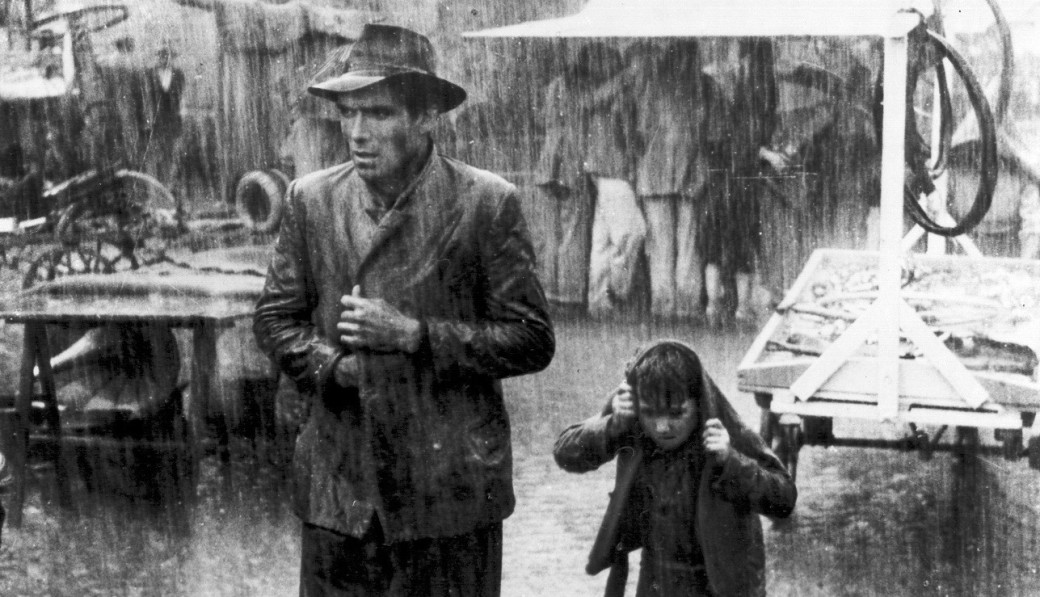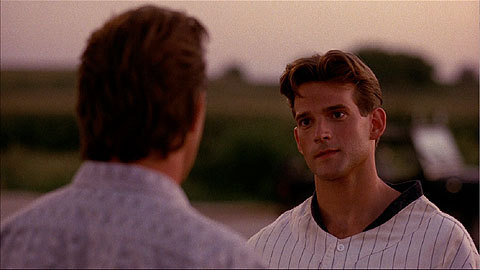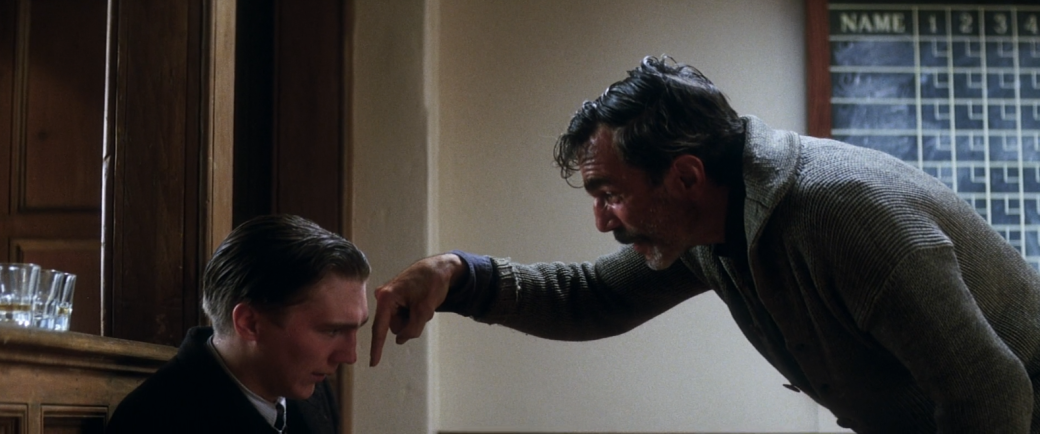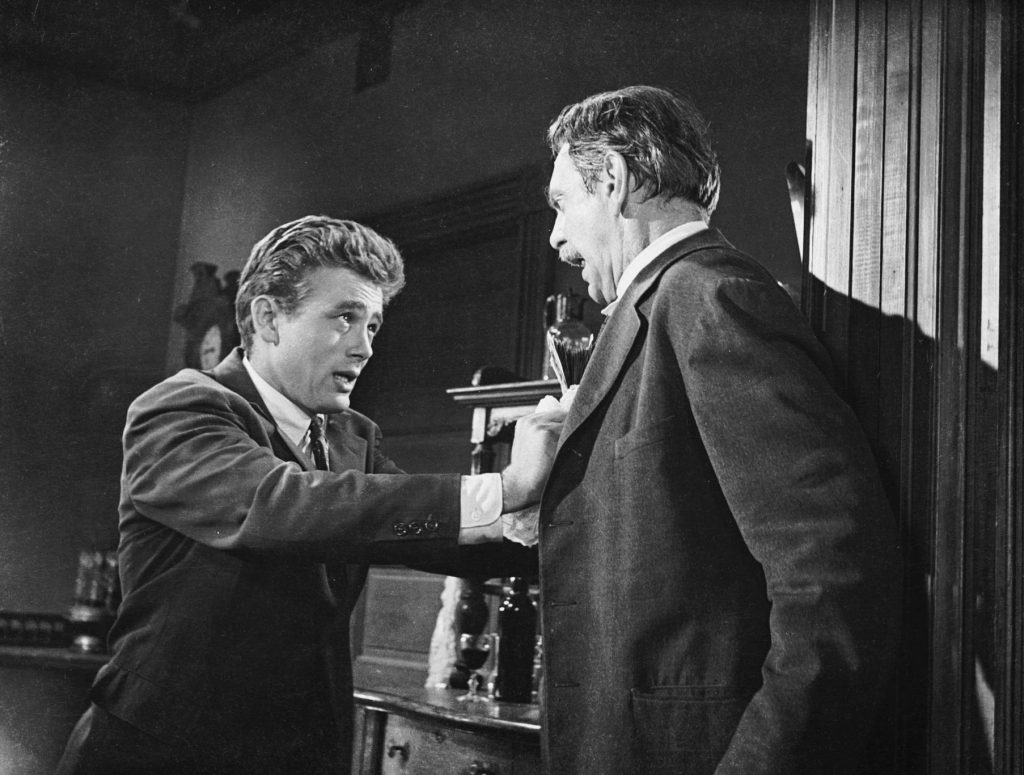So I’m going to go out on my own this one time only, and want to just salute the year of 2007 for Part 7. Apt. This was very much more like it regarding the quality of movies on offer at the Academy Awards. It’s like they were waking up, finally. An Oscar race is not really an Oscar race without a swing in direction however. Early on it looked like Atonement was the one to beat, a film ticking all the right boxes, and it was certainly impressive. There was also talk of quirky Juno sweeping the rug from under everything else – even as the actual show drew closer there was this feeling about Juno. Could this actually win Best Picture? Before long it got much darker, not in the gloomy sense we usually recognize, no, it was apparent that Coen brothers were in fact going head to head with Paul Thomas Anderson. Their nomination tallies of eight apiece and the overwhelming praise they received when they arrived made them the ones to chase after all.
Director — Joe Wright (Atonement)
Joe Wright’s rather disappointing omission from Best Director was the final nail in Atonement’s, even if by then the movie’s buzz had gone south somewhat. His vision and execution seem well-drilled and solid, and he brings out terrific performances from his cast. Wright’s direction is tight, masterful, and demonstrates a great understanding of the craft of film-making, bringing the book Atonement to vivid life with great visual skill, patience, and excellence. The Dunkirk tracking shot alone was enough to warrant a mention. He, of course, returns to the Oscar race right now under similar circumstances.
Leading Actress – Keri Russell (Waitress)
Believe it or not but people were talking about the excellent Keri Russell in Waitress as an outside bet for a Best Actress slot. It was always going to be a dark horse, but you can’t help but wonder, watching this performance now, had she got in would we be mentioning Russell’s name as someone who did not deserve the nomination. I think not. Billed as a comedy I guess, Waitress has a pretty dramatic and adult premise, and Russell takes on the lead mantel with emotional ease and has a commanding presence as a character trying not to bounce off the the lifestyle choices around her during a pregnancy. Under-rated, but overwhelming.

Supporting Actor — Tommy Lee Jones (No Country For Old Men)
As No Country For Old Men touched upon, in with the new ways and out with the old might be the logical step. True, Joel and Ethan were overdue, but this was surely more about the sheer knack they have for creating brilliance after brilliance – eventually it would have to stick. Although Javier Bardem took the Supporting Actor Oscar (quite easily) and was possibly the most memorable villain in this or many a movie for years, the heart and soul was Tommy Lee Jones as the sheriff. Here is an actor so built for this role, both physically and in his acting ability, I cannot imagine anyone else would have even been allowed to play this part. His bemusement, but not quite admitting to defeat, on how the times are changing is sympathetic, and you long to support him and his cause. There is a lot of debate about the movie’s grounded, post-dramatic final scenes, but the more I watch that final dream recounting monologue by Jones I can’t think of a better way to close such a layered movie. It certainly would have been a great nomination clip had he even been nominated here. Wonderful.

Picture — Zodiac
David Fincher’s movies have been involved in varying degrees of Oscar snubbery over the years. And in 2007, as good a year as it turned out to be, we can look back now and see a black hole were Fincher’s Zodiac could have been. You will find that many Fincher fans unsurprisingly have this paced serial killer chase in their top three movies by the director. It does not have the satisfactory good guys prevail ending, and it has few scenes of great horror or intensity – though it does have a couple. What it does have is an absolute precise attention to moving the jigsaw pieces around to solve the puzzle – that is if all the pieces are actually found in the first place. Zodiac shows Fincher at his methodical best.

Original Score — Jonny Greenwood (There Will Be Blood)
I was deeply perturbed when the Academy did not nominate the score for There Will Be Blood by Radiohead’s Jonny Greenwood. I am not going to start blabbering about the ridiculous rule that made this music ineligible, but I will say that they need to change it. It is reminiscent of great classic film music, and gives the impression the composer is a master of his craft. It also perfectly met with Paul Thomas Anderson’s change of tone with his choice of material from which to create a movie. Anyway, have a listen for yourself:







Recent Comments